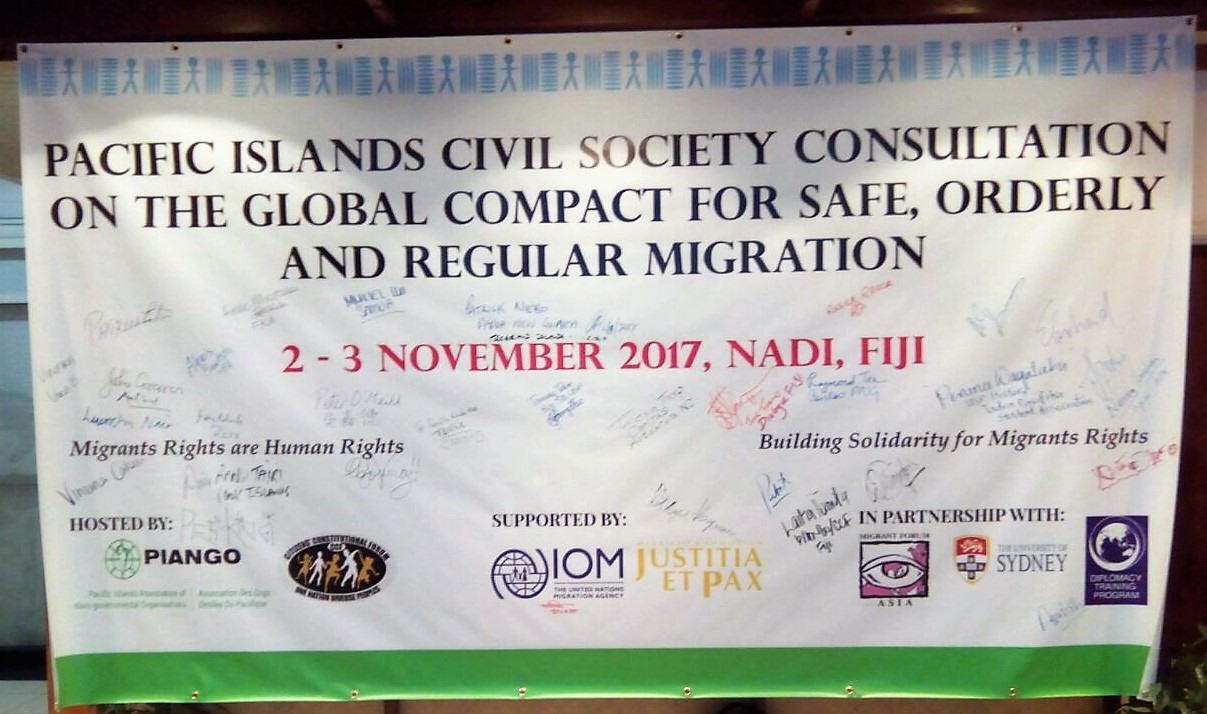
The forum of the Pacific Island Civil Society Consultation on the Global Compact for Safe, Orderly and Regular Migration is a response by civil society stakeholders strongly endorsing dignity for safe, orderly and regular migration into and from the Pacific Region. The said regional consultation was organized in Fiji from November 2 to 3, 2017, by leading civil society organizations such as the Migrant Forum in Asia, Justice and Peace, Sydney Asia Pacific Migration Center and others. The Asia Pacific International Young Christian Workers movement was represented by Nanang Ibrahim.
The forum gathered representatives from non-governmental organizations, youth movements, trade unions, educational institutions, the business sector, and other individuals who deliberated the key issues on human rights and good governance relating to the implementation process of the UN Global Compact on Migration.
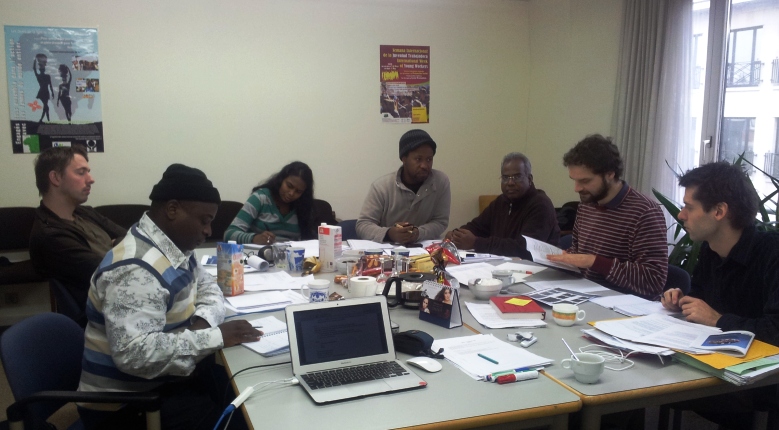
Last Friday 15th February, the International Secretariat (IS) team members met with representatives of World Solidarity Movement (WSM) as part of the process of integration of the new IS members. The meeting took place at the IYCW office in Schaerbeek, Belgium.
The WSM representatives were Bart, Ben and Jeroen. Bart and Ben are responsible for WSM’s international action department while Jeroen is a north-south cooperation program coordinator. All the IS outgoing and new team members were present at the meeting.
There were two strategic items on the agenda of the meeting: international political action and the cooperation program between WSM and the IYCW.
- Details
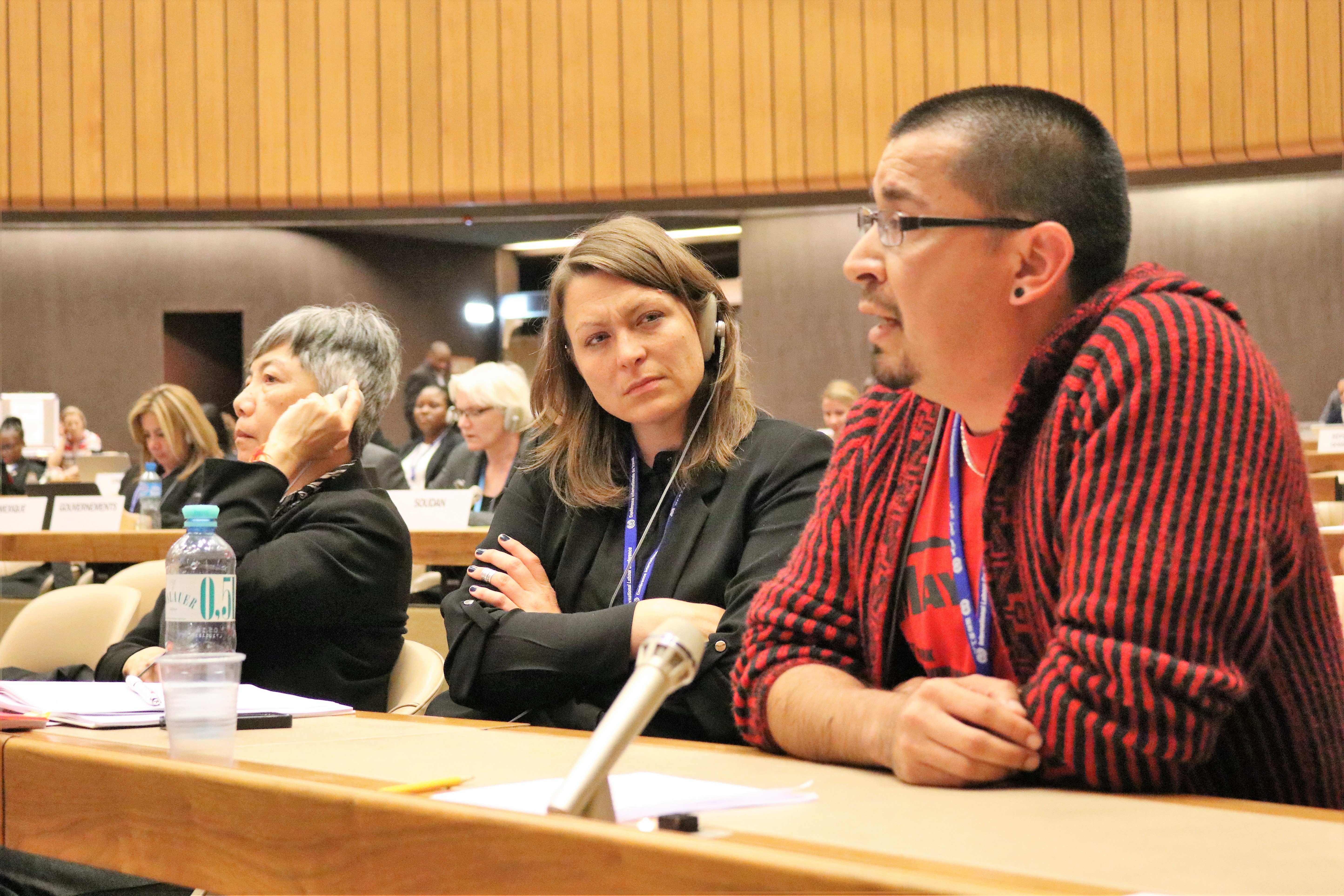
As it does every year, the IYCW attended the 106th session of International Labour Conference held in Geneva in June 2017. Below is the IYCW-WSM joint statement on labour migration, read by Antonio Zela, a YCW activist from Paraguay and continental coordinator.
“I thank you on behalf of the International Young Christian Workers (IYCW) and World Solidarity (WSM) for giving me the opportunity to make a joint statement to this Committee. We would also like to thank the Office for the report prepared for this general discussion.
- Details
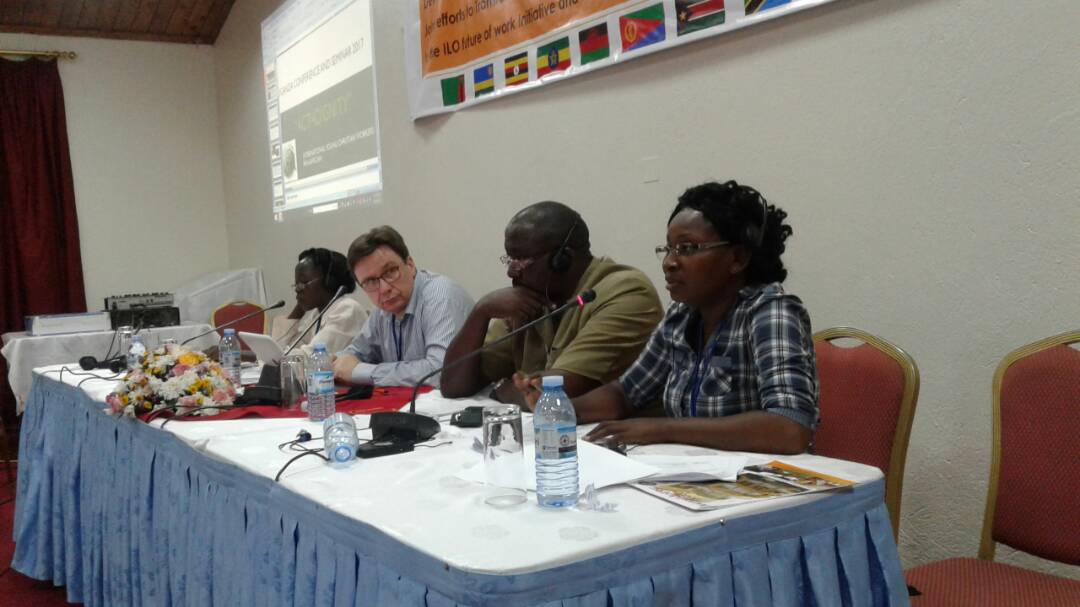
An interreligious conference was held in Uganda from April 25-28, 2017 to deliberate on working conditions in relation to the ILO future of work initiative and the sustainable development goals. It was co-organized by the Justice and Peace Department of the Uganda Episcopal Conference, Kolping International and the International Labor Organization, with the participation of around 65 people from various countries of Africa. Doriabelle Yongala, representative of the International Young Christian Workers Panafrican Team (Panaf), presented the reality of young workers in Gabon and shared the continental analysis on the growing unemployment rate, informalization and the increasing life and work precariousness facing young people.
- Details
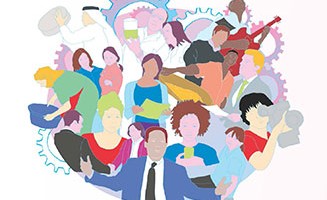 The 2016 International Conference of Non-Governmental Organizations (NGOs) in partnership with the Unesco was held from 12 to 14 December in Paris. The conference focused on the theme “The challenge of the digital revolution for NGOs” and was organized around four subthemes: “The digital revolution and its impact on the diversity of cultural expressions”; “The challenge of access to digital information”; “Does e-learning address challenges of education systems worldwide?”; and, “Science and the digital revolution: which ethical implications?” The International YCW took an active part in it and made its contribution to the debate.
The 2016 International Conference of Non-Governmental Organizations (NGOs) in partnership with the Unesco was held from 12 to 14 December in Paris. The conference focused on the theme “The challenge of the digital revolution for NGOs” and was organized around four subthemes: “The digital revolution and its impact on the diversity of cultural expressions”; “The challenge of access to digital information”; “Does e-learning address challenges of education systems worldwide?”; and, “Science and the digital revolution: which ethical implications?” The International YCW took an active part in it and made its contribution to the debate.
The digital issue is at the very heart of social stakes, resulting in new developments, opportunities but also major challenges. Therefore, all social organizations, but also the society as a whole, will have to face it. According to the Unesco, « The digital revolution has fundamentally altered the way in which cultural goods and services are produced, distributed and accessed. Indeed, the accelerated expansion of social networks and user generated content (UGC), the explosion of data created by cloud computing and the proliferation of connected multimedia devices – smartphones, tablets, phablets, e-readers – in the hands of the users have had a huge impact on the cultural scene, in both the global North and South. Technological changes have led to the emergence of new players and new logics»[1].
During the conference, the IYCW insisted on the two components of the “digital revolution.” It underlined on the one hand the opportunities it offers to our social organization, whether through communication, exchange, the capacity of mobilization, the intensification of interaction, or in terms of visibility, and on the other hand the dangers and challenges it poses, such as surveillance and the creation of monopolies. Increasingly precarious working conditions, in particular for young people, the promotion of consumerism, and most of all the negative impact on social security and social protection, including in the field of participation and financing (unpaid taxes and security of workers in companies) are dangers facing the world of work.
At the Conference, we had the opportunity to meet several friendly organizations, including representatives of the International Young Catholic Students (IYCS), the Centre Catholique International de Coopération avec l’Unesco (CCIC), and the Consejo Latinoamericano de Ciencias Sociales (CLACSO).
For more information, please visit the Unesco website.
[1] Unesco, 2015, “Diversity of Cultural Expressions in the Digital Age,” http://en.unesco.org/creativity/sites/creativity/files/exchange_session_digital_issues_en.pdf



